Navigating the web can sometimes feel like walking through a minefield, especially when it comes to preserving your privacy. You might think that being careful with the websites you visit or the links you click on is enough, but the reality is more complex.
Advertisers, hackers, and even government agencies can keep tabs on your online activities, often without you even realizing it. So how can you ensure that your online life remains your own? Browser extensions designed for privacy and security can be your first line of defense.
In this guide, we’ve compiled a curated list of extensions that can beef up your online privacy in a variety of ways. From preventing tracking cookies to encrypting your data, these add-ons provide an extra layer of protection that goes beyond your browser’s built-in security features. The best part? Most of them are just a click away and extremely user-friendly, even if you’re not a tech guru.
If you’re curious for which browsers these extensions are for, they are primarily for Google Chrome and Mozilla Firefox, both of which amount to a large chunk of the entire web browser market share. If an extension is supported by other browsers (such as Edge, Opera, or its Source can be downloaded) we’ll be including links for that as well.
Privacy Badger
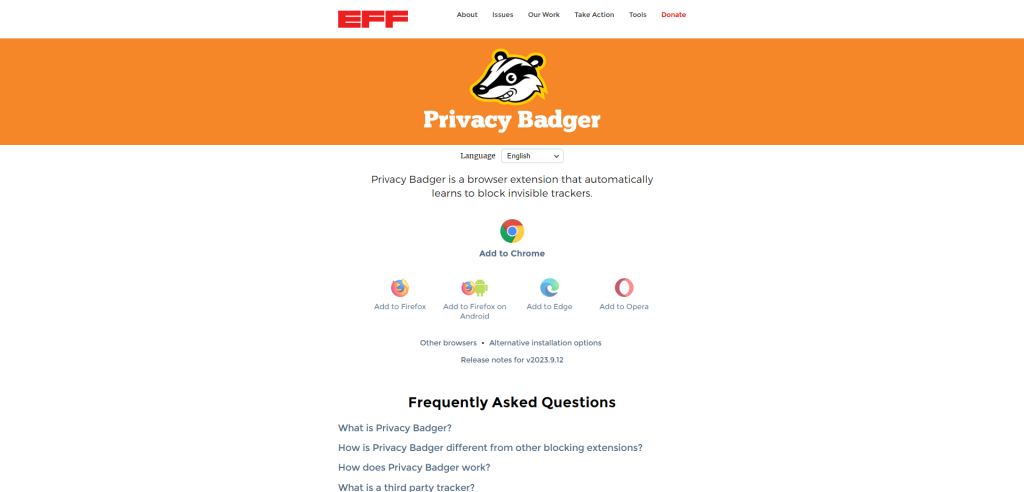
Privacy Badger is a game-changer for anyone who’s fed up with trackers following their online footsteps like an obsessive ex. Developed by the Electronic Frontier Foundation (EFF), this extension identifies and blocks tracking scripts, ads, and invisible trackers that compile your browsing history.
It takes a bit of a hands-off approach, automatically learning from the sites you visit and making real-time decisions about what to block. This way, it only targets the real stalkers and not the benign elements, so your browsing experience remains smooth.
If you ever wondered how the ad for that product you were googling magically appears on every website you visit, then this extension helps sever that annoying connection.
download: Chrome | Firefox | Edge | Opera
uBlock Origin
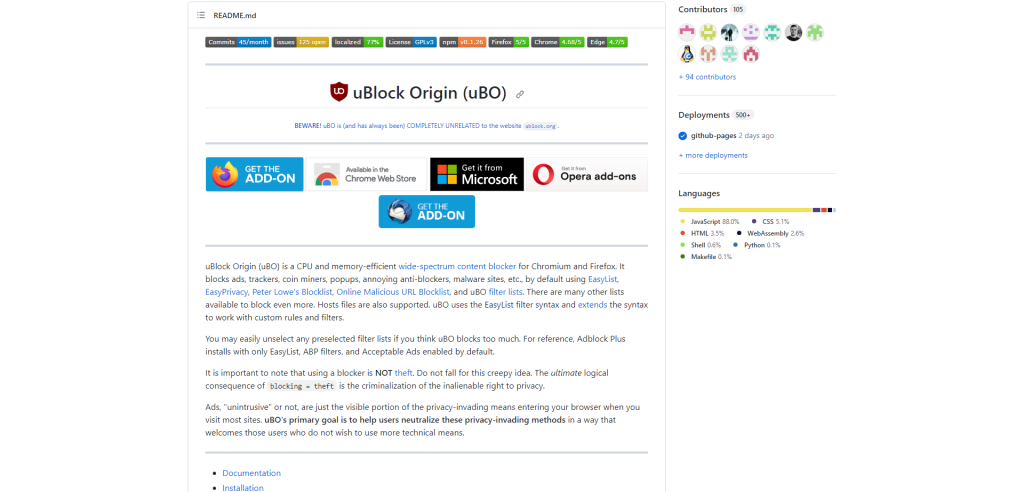
Not all ad blockers are created equal, and uBlock Origin is a testament to that. This open-source software is all about performance and efficiency. It not only blocks ads but also prevents tracking and malware sites.
It uses less memory and CPU resources compared to other popular ad-blockers, thanks to its optimized filter lists. The real kicker? You can customize your blocking lists, add your own filters, and even whitelist websites where you want ads to show.
Essentially, it provides the full toolbox for both casual users and those who want to deep-dive into the gritty details of content filtering.
download: Chrome | Firefox | Edge | Opera
Netcraft Extension
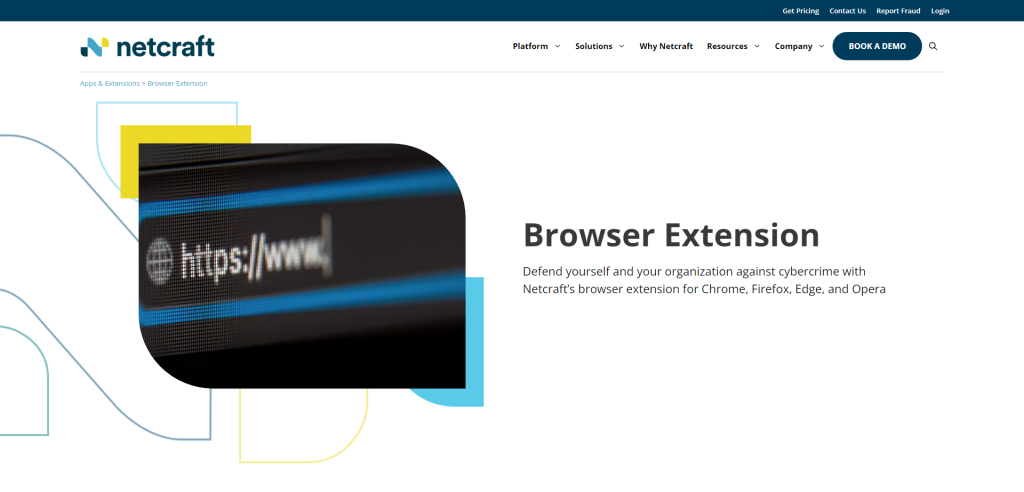
The Netcraft Extension is a comprehensive browser tool designed to enhance online security. It offers a multi-layered defense approach: flagging phishing sites based on community reports, blocking malicious JavaScript, and halting potential credential leaks in real-time.
Moreover, it furnishes detailed site reports and risk ratings, contributing to informed web browsing.
You can even actively report sketchy sites and check for specialized web vulnerabilities like Heartbleed and weak SSL encryption.
download: Chrome | Firefox | Edge | Opera
Decentraleyes
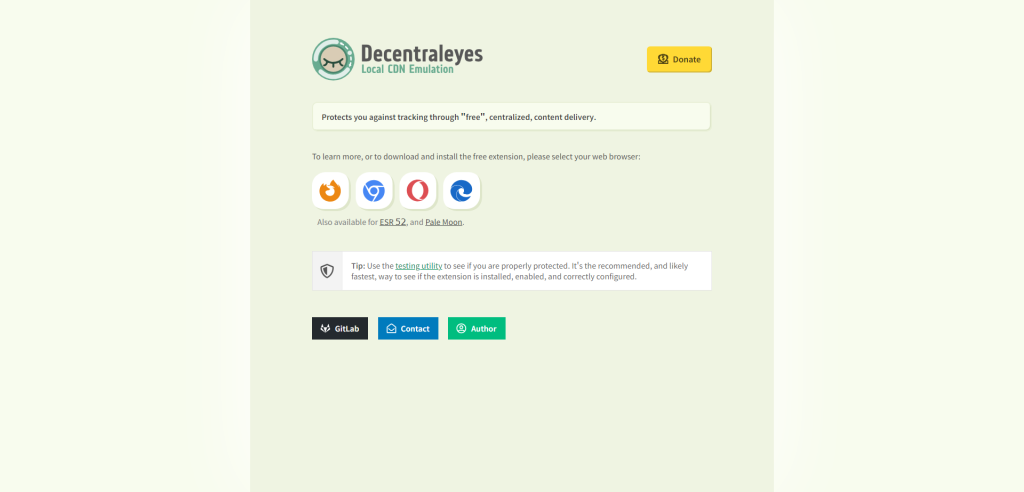
Decentraleyes cuts out the middleman when you’re browsing, reducing your reliance on third-party content delivery networks (CDNs). Normally, these CDNs are a hub where many websites store common files, making them a hotbed for tracking your browsing behavior.
Decentraleyes hosts these common files locally, meaning fewer requests go out, making you less trackable.
It’s similar to crafting your own software instead of using off-the-shelf solutions—you control the entire process and minimize external interference.
download: Chrome | Firefox | Edge | Opera
User Agent Switcher
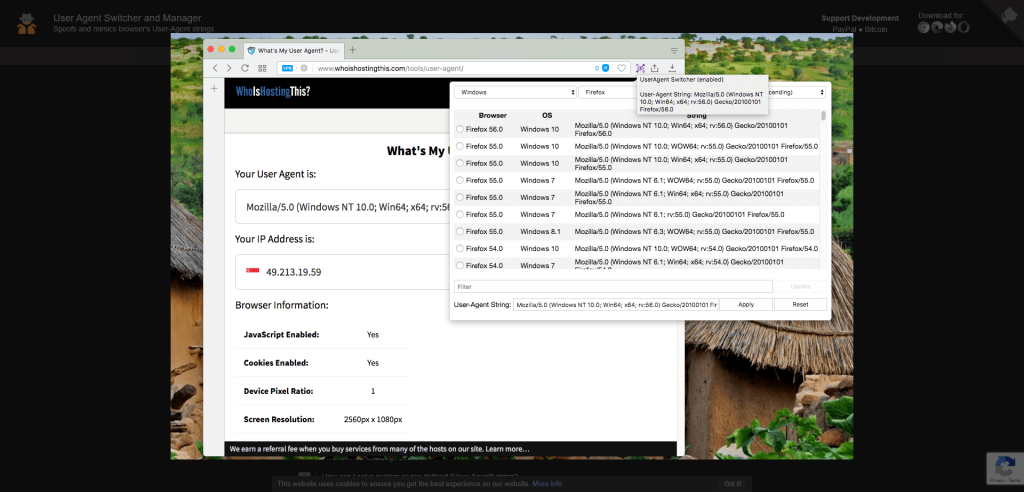
The User-Agent Switcher and Manager extension offers you control over your browser’s user-agent string, the snippet of data that tells websites about your device and browser. This utility enables you to mask this information, making it difficult for websites to collect specifics about your online setup.
Not only can you set custom user-agent strings with a simple toolbar popup, but you can also specify these on a per-site or per-window basis. The extension employs a two-factor method for most accurate mimicking of your default user-agent string, and it doesn’t consume any resources when not in use.
The tool also offers options to randomize user-agent strings and to activate or deactivate this feature for specific domains. It’s a handy tool for those who prioritize online privacy or want to optimize site loading speeds by appearing as a mobile user, for instance.
download: Chrome | Firefox | Edge | Opera
Web Archives
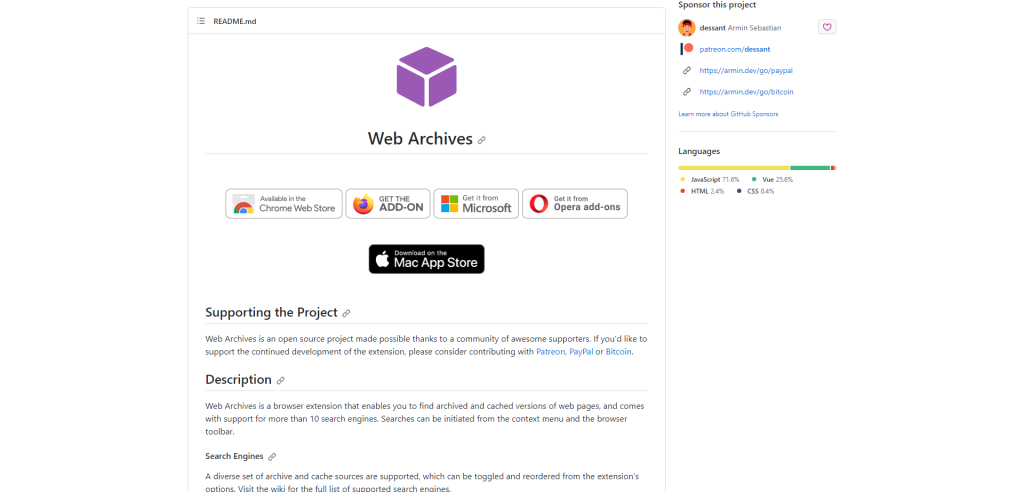
Web Archives is a browser extension that enables users to access archived and cached versions of web pages from a variety of search engines, including the Wayback Machine, Archive.is, and Google. Initiated through either the browser’s toolbar or a right-click context menu, the extension offers multiple search modes, such as searching for the currently opened web page or entering a custom URL.
download: Chrome | Firefox | Edge | Opera
Privacy Essentials
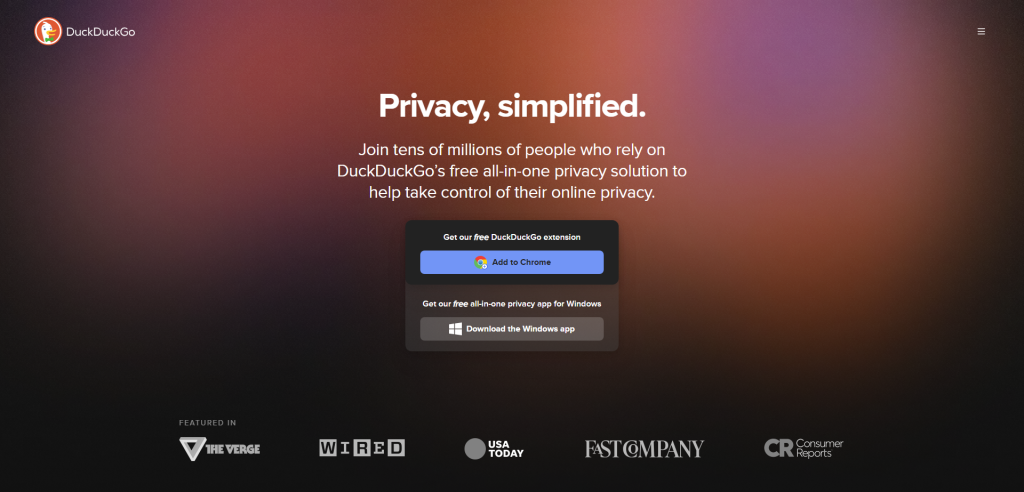
Privacy Essentials from DuckDuckGo is a standout addition to your browser extension toolkit, especially if privacy is at the top of your agenda. This extension is designed to be a one-stop-shop for comprehensive online privacy protection.
Once installed, it automatically sets DuckDuckGo as your default search engine, nixing those third-party trackers right off the bat. It goes beyond typical browser defense mechanisms by preemptively blocking hidden trackers and enforcing encrypted connections across many sites.
And that’s just scratching the surface; the extension also offers built-in email protection that effectively shields you from trackers embedded in emails.
Privacy Essentials shines with additional features not commonly found in other extensions. For instance, Link Tracking Protection prevents companies from hoarding your browsing history, and specialized blocks are set up against Google’s and Facebook’s newer tracking technologies.
What makes it even more compelling is its Global Privacy Control feature, allowing you to automatically signal websites to respect your data protection rights, although the legal enforcement of this feature is still jurisdiction-dependent.
CSS Exfil Protection
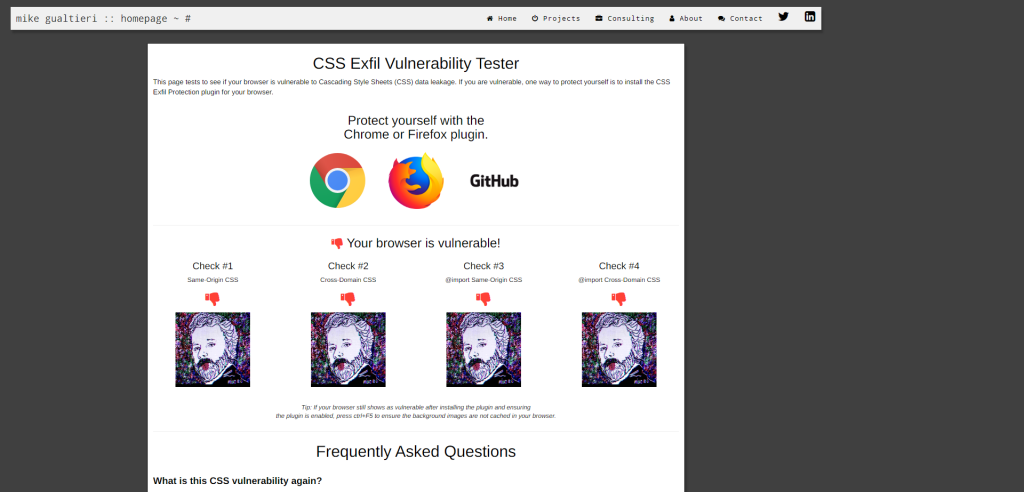
The CSS Exfil Protection extension is a security tool designed to shield your browser from data theft attempts that exploit Cascading Style Sheets (CSS). In a CSS Exfil attack, the offender uses malicious CSS rules to siphon off data from web pages you visit.
This extension acts as a safeguard by sanitizing and blocking any such hazardous CSS rules, making it an essential addition for those concerned with maintaining a secure browsing environment.
download: Chrome | Firefox | Source
Canvas Fingerprint Blocker
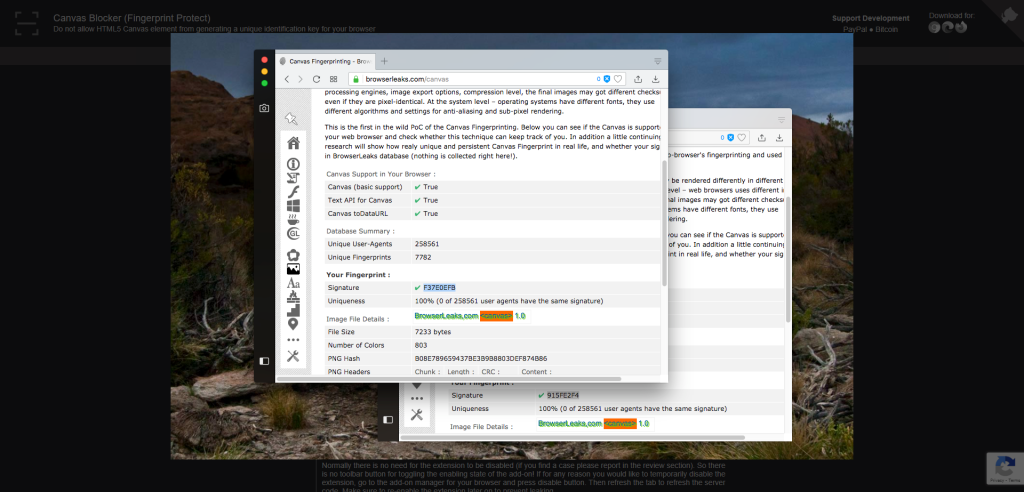
Your browser has a fingerprint, a unique combination of settings and features that websites can track. Canvas Fingerprint Blocker scrambles this digital ID, making it harder for sites to monitor your online activity.
Unlike other extensions that simply block canvas fingerprinting, this one generates a ‘noise’ that disguises your actual fingerprint. So instead of going incognito, it’s like wearing a digital disguise to thwart the trackers.
download: Chrome | Firefox | Edge
ClearURLs
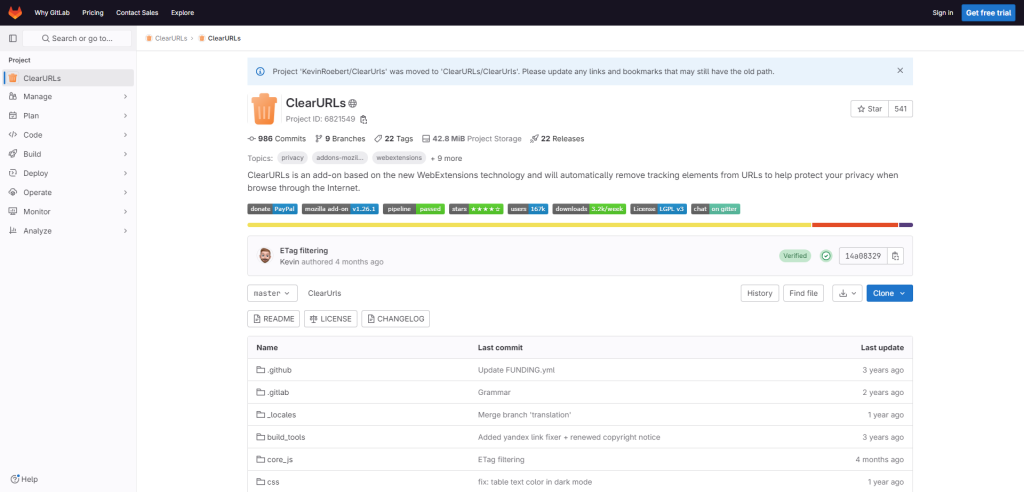
The ClearURLs extension is designed to enhance your online privacy by stripping away tracking elements commonly embedded in URLs. When you browse the web, many websites append tracking codes to their URLs to monitor your online behavior.
This tracking information is not essential for the website to function but can compromise your privacy. ClearURLs automatically removes these tracking elements in real-time as you browse.
It’s particularly useful for cleaning up overly complicated URLs, like those you might find on Amazon. Additional features include optional ad domain blocking, a multi-URL cleanup tool, and prevention of tracking via various methods, such as hyperlink auditing and history API manipulation. The extension gives you cleaner, safer web navigation without the surveillance baggage.
download: Chrome | Firefox | Edge
LibRedirect
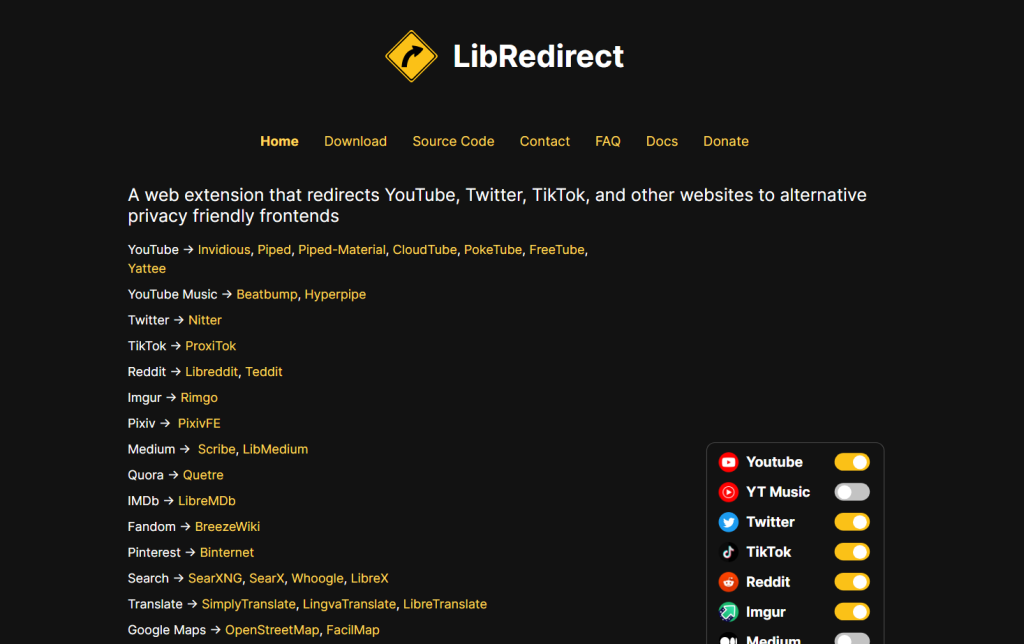
Social media sites are notorious data hoarders. LibRedirect takes you away from data-hungry platforms like Twitter, Instagram, and YouTube, and redirects you to their privacy-respecting alternatives like Nitter, Bibliogram, and Invidious.
download: Chrome | Firefox | Source
PrivacySpy
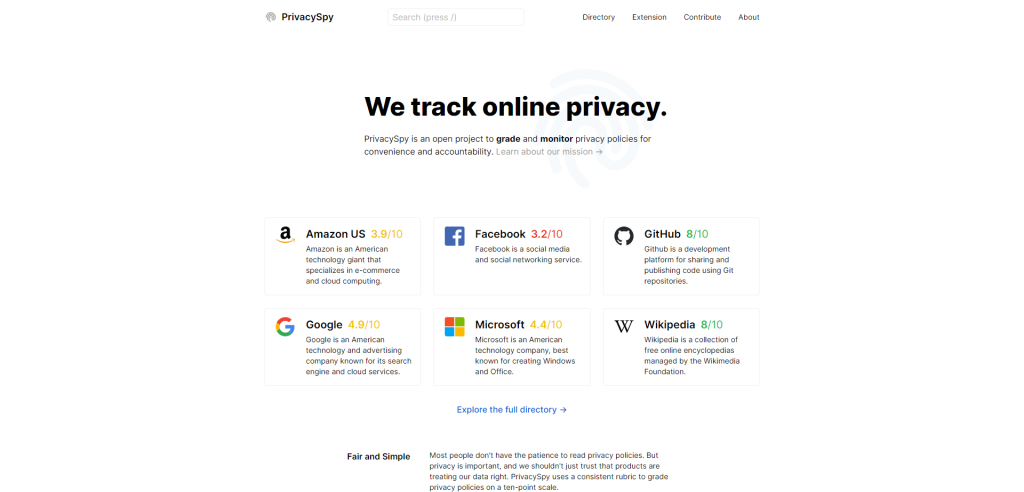
Think of PrivacySpy as your personal privacy critic. It rates websites based on their privacy policies, breaking down complex legalese into understandable scores. This can guide you in choosing which services to trust and which to avoid, arming you with knowledge that’s often buried in lengthy, unreadable terms and conditions.
download: Chrome | Firefox | Source
ScriptSafe
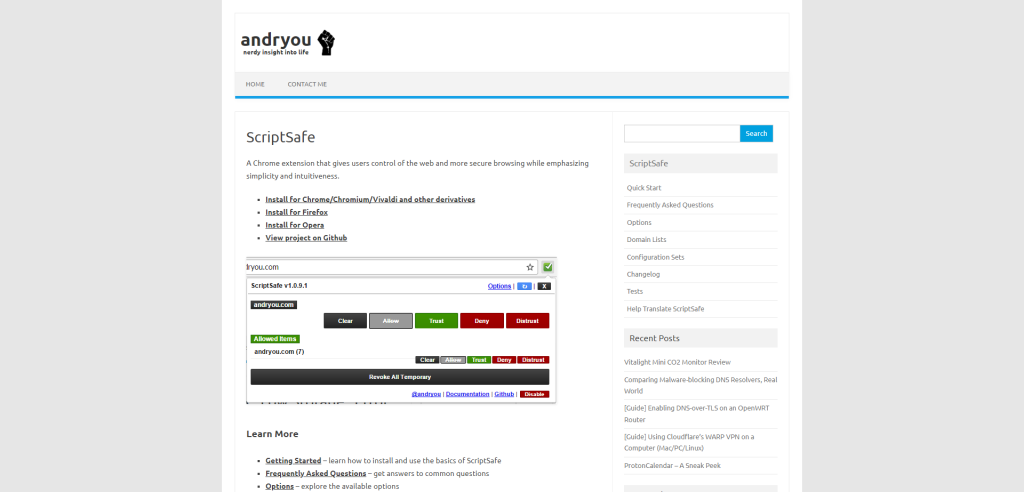
ScriptSafe is a browser extension aimed at giving users both control and security when surfing the web. It packs a variety of features for granular control over website behavior. You can whitelist or blacklist specific sites, protect against various kinds of fingerprinting such as canvas tracking, and secure yourself against WebRTC leaks.
The extension also speeds up your browsing experience by blocking non-essential elements like scripts, iframes, and multimedia objects. It incorporates lists from reputable sources to block malicious or tracking servers.
Additional utility functions include the ability to randomize user-agent strings, block unwanted cookies, and disable automatic page refreshes. All your settings and lists can be synced across devices via Google Sync.
Privacy-Oriented Origin Policy
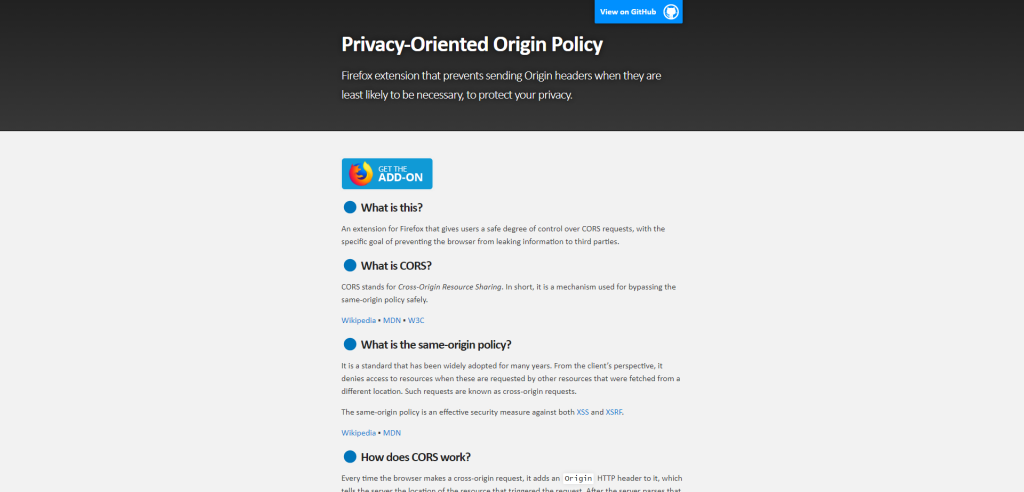
The Privacy-Oriented Origin Policy (P.O.O.P.) extension is an unsung hero for Firefox users who are keen on amping up their online security. At its core, this extension manipulates CORS (Cross-Origin Resource Sharing) requests to make sure you’re not inadvertently sharing sensitive information.
It works by modifying or completely removing the Origin header from GET requests. Two modes—aggressive and relaxed—let you decide just how stringent you want to be. The aggressive mode alters all GET requests, potentially breaking some site functionalities.
Meanwhile, the relaxed mode uses heuristics to figure out which GET requests are likely to include credentials and leaves those untouched. And if you’re thinking, “What if this breaks a site I need?”—don’t sweat it. The extension comes with whitelist and exclusion options to give you more control.
HTTPS Everywhere
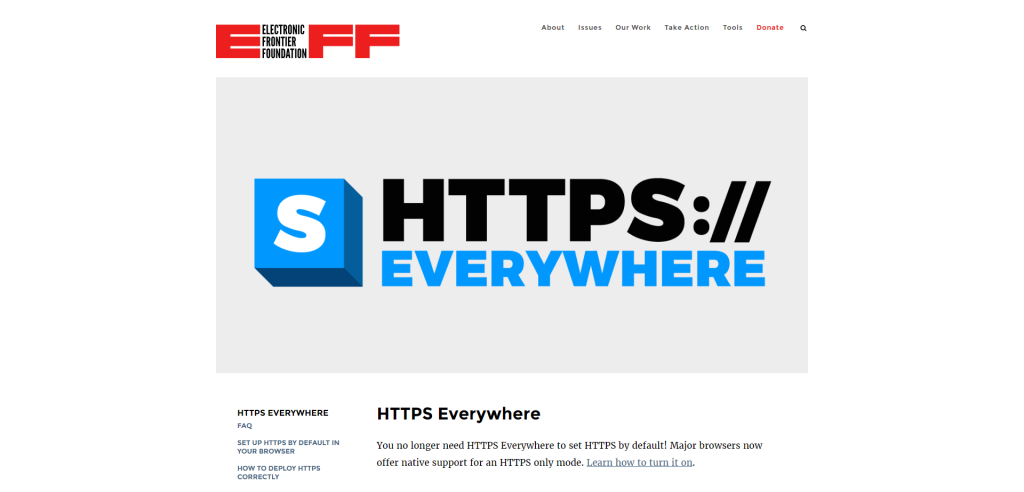
Browsing without HTTPS is like sending a postcard—you never know who’s going to read it along the way. HTTPS Everywhere, another extension by EFF, solves this by rewriting HTTP links to HTTPS automatically.
This secure channel encrypts the data between you and the server, rendering it unreadable for any potential eavesdroppers. As simple as it sounds, many websites still default to the insecure HTTP, leaving your data vulnerable.
HTTPS Everywhere is a straightforward tool that gives you a more secure browsing experience, no bells and whistles needed.
It appears that links on the EFF page are “somewhat” broken except for Firefox, I’ve reached out to EFF to ask them what is going on. I’ll update once I know more.
Summary
There you have it, a selection of browser extensions designed to act as your personal security detail in the digital world. They’re not just about blocking ads or muting annoying pop-ups; they take on the vital role of maintaining your online privacy.
By understanding the functionality and importance of each of these browser extensions, you’ll be better equipped to protect your online privacy. Each tool has its unique approach to guarding your data, and many work well in tandem. The key takeaway is that in an environment full of prying eyes, you have a robust set of tools to keep your online life as private as you desire.
Is complete anonymity possible? Probably not, but with the right tools, you can make it extremely difficult for anyone to exploit your online activities. Use these extensions as your first line of defense, your digital moat, if you will.
The web might be a treasure trove of information and entertainment, but it’s also fraught with risks. Equip yourself with the right tools, and you’ll be well on your way to a safer, more private online experience.
Interested in more privacy-respecting software and tools? Check out our other articles, such as secure photo storage platforms, as well as our in-depth guide on secure messaging apps. Likewise, you can also check out our Security section in which we typically enlist these types of guides.
